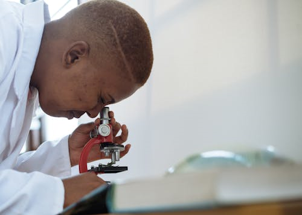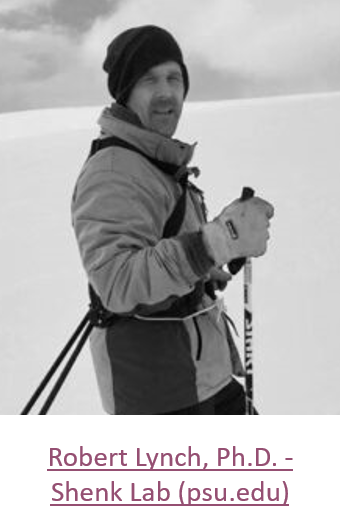Get Ready for Woke Biology: Current Textbooks Accused of ‘Outdated Ideas’
One after another, the dominoes of traditional education are falling. The failure to teach basic academic skills is an increasingly obvious issue impacting many subjects, including reading, math, civics, history, “health,” and even science. Now, any semblance of teaching factual biology appears to be in jeopardy with the accusation that U.S. biology textbooks contain “misguided assumptions on sex and gender.”
The notion that sex and gender are different concepts has existed in American culture for years, and taught more recently by activist teachers to schoolchildren as young as kindergarten. It’s not surprising, therefore, that textbooks featuring actual biology must of necessity come under fire for failure to reflect these myths.
 A February 22 article in Newsweek cited a study by the journal Science that accuses U.S. high school textbooks of promoting “an outdated view of sex and gender.” The article quotes study co-author Brian Donovan, senior research scientist at a Colorado Springs nonprofit called BSCS Science Learning, as saying: “Our study suggests that the material that adolescents are exposed to in school textbooks might itself—even if unintentionally—be a source of essentialist ideas," a reference to the traditionally accepted fact that sex and gender “are interchangeable, and that men and women are fundamentally different.”
A February 22 article in Newsweek cited a study by the journal Science that accuses U.S. high school textbooks of promoting “an outdated view of sex and gender.” The article quotes study co-author Brian Donovan, senior research scientist at a Colorado Springs nonprofit called BSCS Science Learning, as saying: “Our study suggests that the material that adolescents are exposed to in school textbooks might itself—even if unintentionally—be a source of essentialist ideas," a reference to the traditionally accepted fact that sex and gender “are interchangeable, and that men and women are fundamentally different.”
In today’s age of placing feelings and desires over the scientific method of discovery, facts can be replaced with newly minted language that serves to obscure and confuse. The buzzword “essentialism,” for example, suggests, according to Donovan, that previously established biological fact is now “an overly simplistic lay view that is at odds with the scientific consensus on sex and gender” and “should have no place in the biology curriculum.”
The opening paragraph in the study overview offers this confusing gem:
- Essentialism is the lay assumption that categories of living things have underlying, unobservable “essences” (1, 2). When applied to sex and gender, this assumption has a range of negative consequences, including stereotyping and discrimination (1, 2). We investigated a potentially powerful—but so far unexamined—sociocultural influence on the development of essentialism about sex and gender: what high school biology textbooks teach adolescents about these topics. We content-analyzed six of the most widely used textbooks in the United States and found that they depart from established scientific knowledge about sex and gender, instead portraying these categories in a manner consistent with essentialism.
The overview goes on to bemoan vague concepts such as “conceptual biases,” which kids are presumably still learning from flawed textbooks, and even attempts to link the texts to “the development of essentialism about racial groups” although it’s unclear as to exactly how gender and race are hereby connected.
The crux of the problem for activists appears to be that the textbooks investigated by the study, which were published between 2009 and 2016 “and comprise about two-thirds of the introductory high school biology classes across the U.S.,” did not differentiate “between sex and gender as different concepts.” The report laments that the textbooks contradict “the scientific literature-backed view that sex is a biological phenomenon and gender is a sociological construct.”
The study accuses those “who hold essentialist beliefs” of ignoring variations within the sexes, but it’s more likely that the textbooks in question are actually meant to teach long-established biological fact as a general rule rather than as an assertion that all human beings of the same sex are exactly alike. In other words, the accusation may be more of a hollow excuse to replace long-accepted biological concepts with the faux “science” in vogue today.
Rewriting textbooks?
The bottom line is that these study findings are being positioned as “a call to action” for the revision of high school biology curriculum so that, according to study co-author Andrei Cimpian, a New York University Department of Psychology professor, “it reflects accurate scientific knowledge rather than misguided assumptions that may foster gender stereotyping and discrimination.”
A website called Writing Tips Oasis may provide a clue as to what this call for revisions might mean in the practical sense. It lists the top 17 science textbook publishers and encourages writers to submit proposals for new content directly to these publishers. Some might speculate that any new proposed content will likely be slanted left, given the current political climate that favors dismissal of scientific facts amid accusations that they perpetuate bias and discrimination. The writing — or rewriting — in this case, is on the wall.
Biology or culture war?
The subversion of biology education in government schools might be the logical culmination of the goal so aptly described in a 2017 Heritage Foundation report titled Sex, Gender, and the Origin of the Culture Wars: An Intellectual History. This well-documented historical account chronicles how feminist efforts “to separate sex from gender,” “shake confidence in the very idea of man and woman,” and “create a world without preconceived roles,” has succeeded beyond the dreams of the “second-wave feminists” who championed it.
This report traces the roots of modern confusion to the sexual revolution initiated by French feminist Simone de Beauvoir following the Second World War. While readers of Education Reporter know these roots date back to the 18th century, Beauvoir was nonetheless a destructive catalyst for modern feminism. Feminists drew on her distinction between gender (society’s prevailing opinions about what man and woman should be) and sex or biology (the seemingly immutable characteristics of the body and closely linked psychological traits)....
Feminists drew on her distinction between gender (society’s prevailing opinions about what man and woman should be) and sex or biology (the seemingly immutable characteristics of the body and closely linked psychological traits)....
Heritage wrote: “In this mode of thinking, gender is merely an idea constructed to keep women in a subordinate position. This critique claimed to show how biological realities and social mores contributing to womanly identity were neither necessary nor healthy, and it posited a future where women would be free to define their identities without any reference to their bodies. A world of complete freedom would be a world ‘beyond gender’—a world in which no members of society would make assumptions about an individual based on biology.”
But not all scientists have agreed with the feminists through the centuries, including those they would likely have otherwise applauded, starting with Charles Darwin, author of the theory of evolution. Among others of his era and later, Darwin was a staunch defender of “the sexual basis for gender on apparently authoritative, scientific grounds.” In his book The Descent of Man, he argued that “males and females have different characters because they have different genetic makeups derived from the successful procreative and survival strategies of genetic forebears.” Edward O. Wilson On Human Nature (Cambridge, MA: Harvard University Press, 1978), pp. 139—140
Dismissing biology
In April 2023, Penn State evolutionary anthropologist Robert Lynch published a comprehensive argument in favor of biological reality in Skeptic, titled From Sex to Gender: The Modern Dismissal of Biology. Lynch’s excellent treatise delves into the biological weeds, yet is both understandable and informative.
On sex and gender, he observes, for example:
- The rhetorical contortions and inscrutable jargon required to assert that gender and sex are nothing more than chosen identities and deny what every parent knows require increasingly complex and incoherent arguments. This not only subverts the public’s rapidly waning confidence in science, but it also leads to extreme exaggerations designed to silence those who don’t agree, such as the claim that discussing biological differences is violence. The lengths to which many previously trusted institutions, such as the American Medical Association, go to deny the impact that hormones have on development are extraordinary.
Lynch’s case for biological fact is refreshingly commonsense and comforting to readers who accept reality and are increasingly alarmed with the unrelenting cultural shift despite its obvious falsehood.
 He further notes that “prior to 1955, gender was almost exclusively used to refer to grammatical categories,” such as masculine or feminine nouns in French or Spanish. The new meaning was applied during the 1960s in an attempt to distinguish social and cultural differences from biological ones (sex).
He further notes that “prior to 1955, gender was almost exclusively used to refer to grammatical categories,” such as masculine or feminine nouns in French or Spanish. The new meaning was applied during the 1960s in an attempt to distinguish social and cultural differences from biological ones (sex).
This change, he explains, “is not merely stylistic. Rather, it is part of a much larger cultural and political movement that denies or attempts to explain away the effects of biology and evolution in humans altogether. The prevailing dominant view in the social sciences is that human sex differences are entirely socially constructed. In that interpretation, all differential outcomes between men and women are the result of unequal social, economic, and political conditions, and so we do all we can to eliminate them, particularly by changing our expectations and encouraging gender-neutral play in children.”
Lynch uses the statistical method to graphically show the differences and similarities between men and women, including the different preferences upon which they act when given a choice. His scientific findings “imply that there is a limited capacity for outside interventions imposed from the top down to alter these behaviors,” which is inconvenient for gender activists.
The ultimate Truth
Of course, for believers in a Creator God, scientific explanations are educational but unnecessary. For them, biological reality is rooted in Sacred Scripture and has consistently been taught in Christian civilization for millennia.
An essay by Claire Smith of The Gospel Coalition puts it simply and succinctly:
- While sin entered the world by distorting gender differences, Jesus Christ came as a gendered human and opened the way for our genders and relationships to be redeemed. This does not allow for sex and gender to be redefined; rather, we are to live all the more faithfully within our roles and responsibilities indicated by our sex, while sharing equally in the inheritance of Christ from God.
Smith concedes that the push to label gender as a merely social construct through changes wrought “by feminism, the LGBT+ revolution, and queer theory” have made the previously simple contentment of accepting bodily sex and gender as “givens” more pressing and complicated, “even within the church.”
How the evolution of biology textbooks will play out remains to be seen, but indications are that changes are coming. It will be up to homeschoolers, and parents and teachers in other alternative educational settings to ensure that students continue to learn from a sound biology curriculum.
Robert Lynch notes that “the push for a biologically sexless society is an arrogant utopian vision ... that undercuts respecting each individual for their unique individuality. Sex is neither simply a matter of socialization, nor a personal choice.”
Want to be notified of new
Education Reporter content?
Your information will NOT be sold or shared and will ONLY be used to notify you of new content.
Click Here
Return to Home Page
